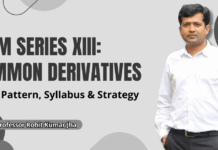While copy trading is traditionally associated with retail investors, institutional investors are increasingly exploring its potential as a strategic tool. Hedge funds, asset managers, and family offices are leveraging copy trading to diversify portfolios, enhance automated trading capabilities, and access new markets with reduced operational costs. However, despite its advantages, institutional adoption of copy trading presents unique challenges, particularly regarding risk management, regulatory compliance, and liquidity constraints.
Why Institutional Investors Are Considering Copy Trading
Institutional investors operate on a much larger scale than retail traders, requiring sophisticated strategies to maximize returns while controlling risk. Copy trading offers a way to access experienced traders’ strategies without having to develop in-house trading expertise for every market. This is particularly useful in areas such as forex, cryptocurrency, and derivatives, where specialized knowledge is critical for success.
Automation is another key factor driving institutional interest in copy trading. By mirroring the trades of proven professionals, institutions can execute high-frequency trades efficiently, minimizing human error and maximizing market opportunities. Unlike traditional investment methods, copy trading allows firms to deploy capital into tested trading strategies without requiring full-time management of individual positions.
Opportunities for Institutional Investors in Copy Trading
One of the primary benefits of copy trading for institutional investors is portfolio diversification. Rather than relying solely on internal research teams, institutions can follow multiple high-performing traders across different asset classes. This approach helps mitigate risks associated with overexposure to a single market or trading strategy.
Scalability is another advantage. Unlike retail traders, institutions have significant capital reserves, allowing them to scale copy trading strategies more effectively. By allocating larger funds to traders with proven consistency, institutions can optimize returns while maintaining strict risk controls.
Additionally, copy trading provides institutions with access to emerging markets and alternative asset classes. Many hedge funds and asset managers are using copy trading to enter cryptocurrency trading, a sector that requires deep technical expertise and constant monitoring. By copying traders specializing in digital assets, institutions can gain exposure to these markets without building in-house crypto trading teams.
Challenges Facing Institutional Adoption of Copy Trading
Despite its advantages, copy trading presents several challenges for institutional investors. One of the biggest concerns is risk management and capital allocation. While retail traders can afford to take risks on individual trades, institutions must adhere to strict risk parameters. Copying an aggressive trader with high leverage can lead to significant losses, making due diligence essential when selecting traders.
Regulatory compliance is another major hurdle. Financial institutions must operate within stringent regulatory frameworks that govern automated trading, investor protection, and market stability. Copy trading platforms must meet regulatory requirements, and institutions must ensure that their trading activities align with financial laws. Compliance teams must carefully review how it fits within investment mandates to avoid legal risks.
Liquidity is also a consideration. Institutions deal with larger trade volumes than retail traders, which means copy trading strategies must be able to execute high-value trades without affecting market prices. Some platforms are optimized for retail trading and may not offer the depth of liquidity required for institutional investments.
Data transparency is another challenge. Institutions require real-time analytics, risk assessment tools, and performance tracking to evaluate traders effectively. While retail copy trading platforms provide basic performance metrics, institutional investors need more advanced insights to assess trader consistency, risk exposure, and market adaptability.





































